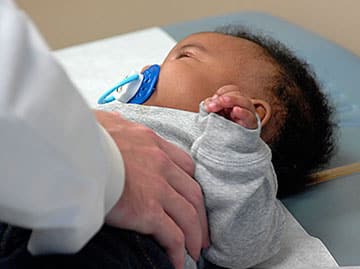The pediatric sleep medicine experts at UT Physicians specialize in evaluating, diagnosing, and treating sleep disorders in children.
A refreshing night’s sleep is vital to a productive day. Sleep is essential in children’s development, especially as they learn new information, concepts, and skills. Children also need more hours of sleep each night than an average adult. For instance, a 2-year-old should have 11-14 hours of sleep each day, according to the National Sleep Foundation. However, there are many barriers to obtaining a restful night’s sleep. In addition, children exhibit symptoms of poor sleep differently than adults.
Children with poor sleep may exhibit:
- Hyperactivity
- Poor grades
- Daytime sleepiness
- Behavioral problems
- Difficulty concentrating
- Urination during sleep (nocturnal enuresis)
How we can help
Our experts provide a comprehensive approach to care for our pediatric patients. After a thorough assessment, we provide a strategic plan to implement further testing and/or interventions to improve sleep. In some cases, a sleep study (polysomnogram) may be ordered.
Common sleep disorders addressed include:
- Sleep apnea
- Insomnia
- Inadequate sleep hygiene
- Narcolepsy
- Sleep movement disorder
- Circadian rhythm disorder
- Parasomnias (undesirable arousals from sleep)
- Excessive sleepiness
Sleep studies (polysomnograms) assess the quality of sleep overnight. For children, the procedure is performed in a pediatric sleep center with a trained sleep technologist. During the study, detectors (electrodes/belts) are applied to the patient to detect sleep stage, breathing pattern, oxygen and carbon dioxide levels, heart rhythm, and limb movements. The detectors are applied to the surface of the skin or over the child’s clothes (i.e., no needles). If appropriate, the provider will order the sleep study after a clinical evaluation.






